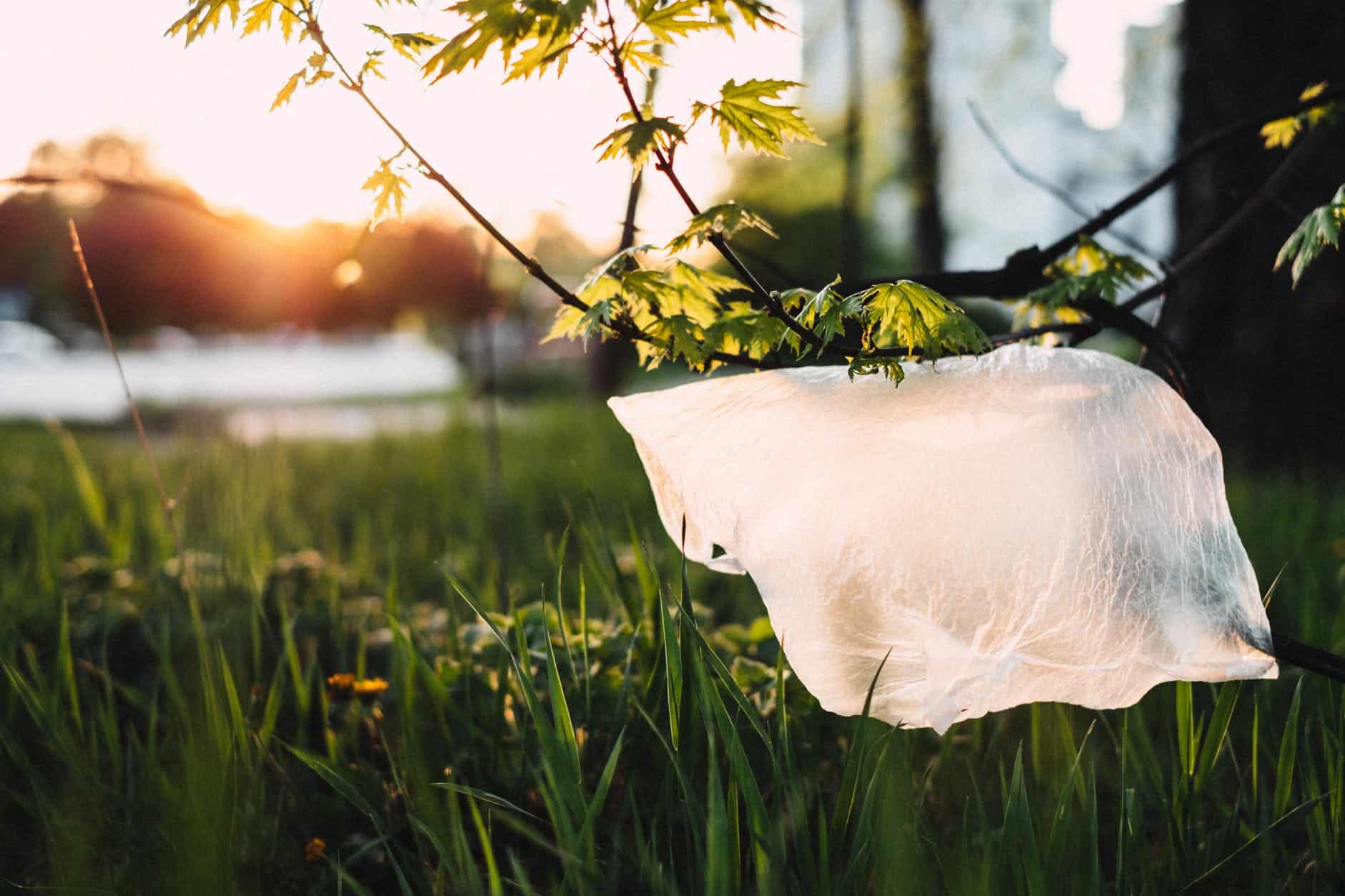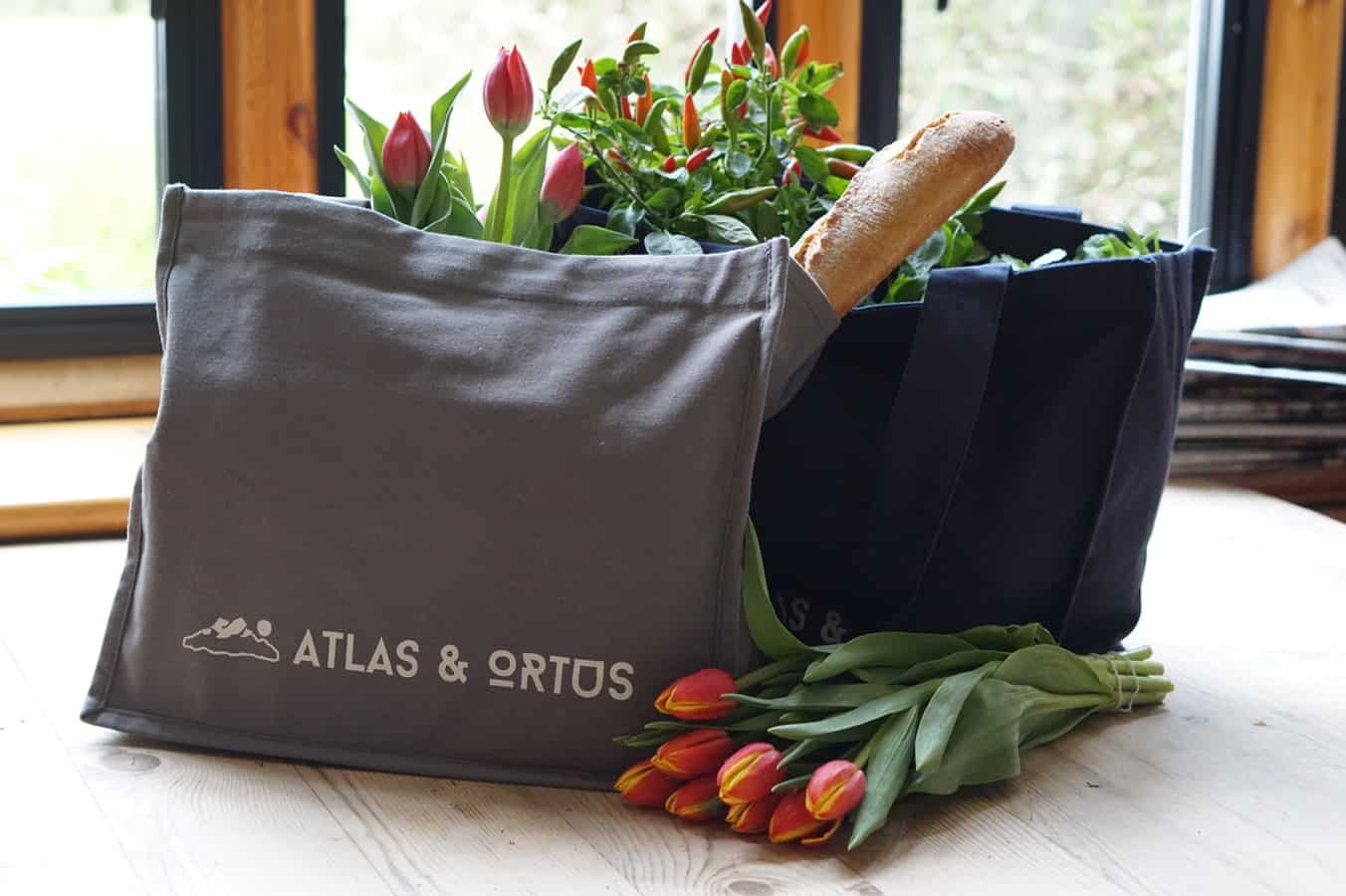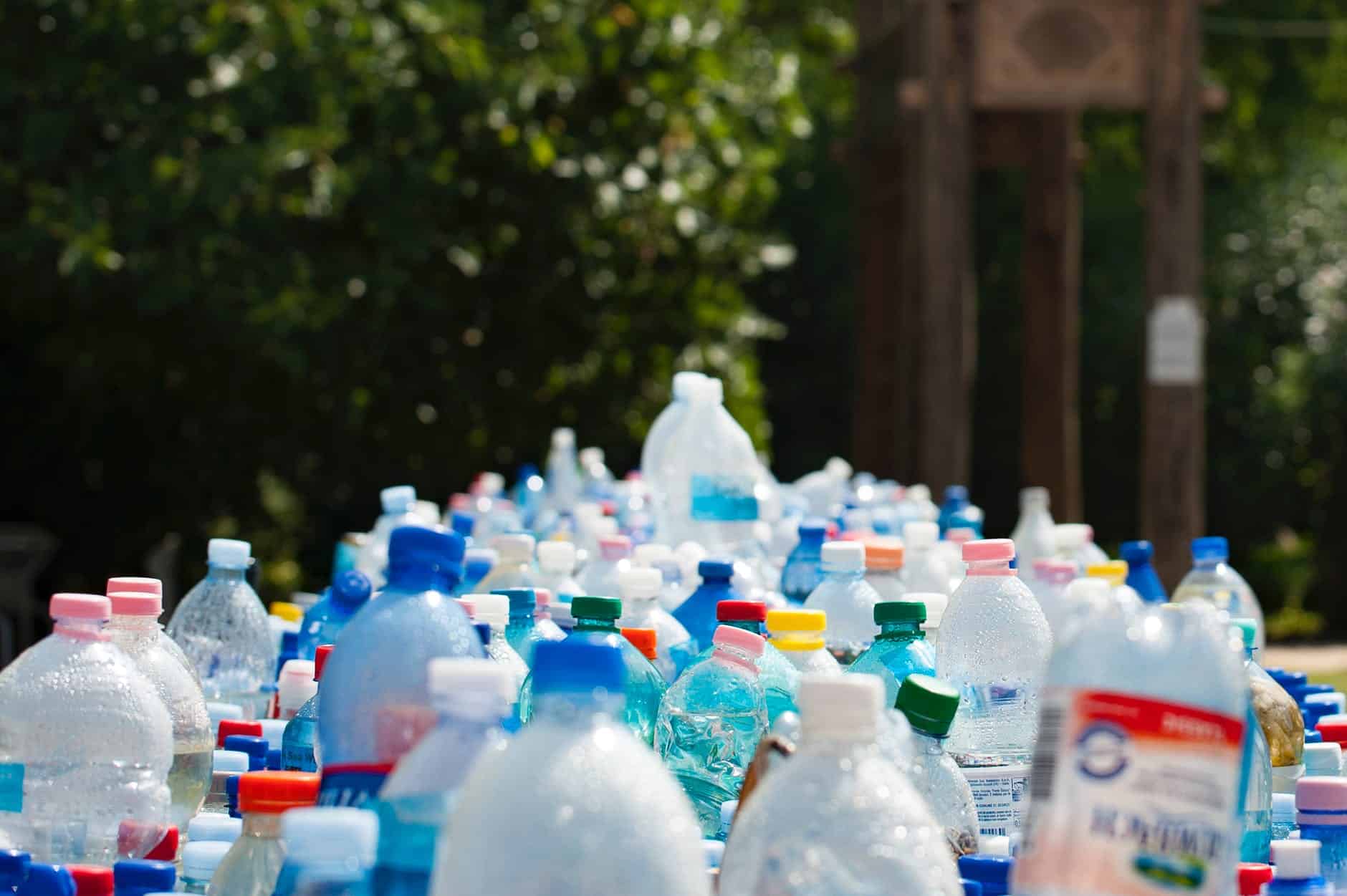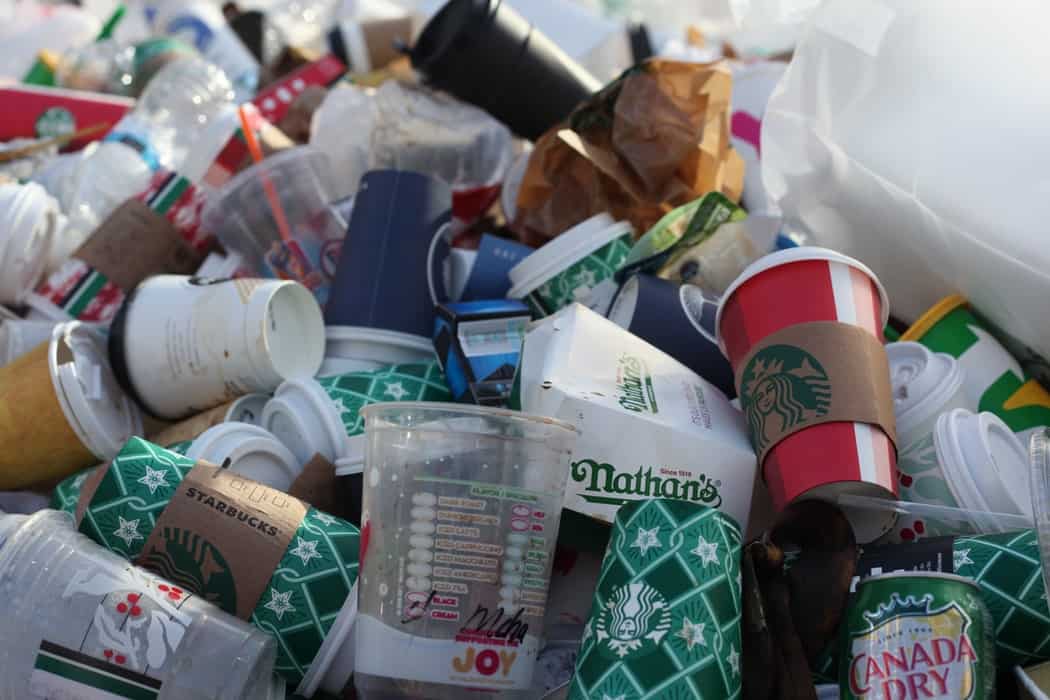Plastic free living will become the norm as legislation and motivated global citizens change their habits.
The founder of the Plastic Free July movement is an Australian. Rebecca Prince-Ruiz founded the Plastic Free Foundation with a small team in local government in Western Australia. The movement is now one of the most influential environmental campaigns in the world.
Millions of people across the globe take part every year. Many commit to reducing plastic pollution far beyond the month of July.
Discover the importance of the plastic free movement and learn some easy tips to go plastic free.
The Problem With Plastic
Plastic is a blessing and a curse for us here on planet Earth. The material gives us cheap manufacturing and long lasting products, ushering in the age of plenty that we now enjoy.
But, as we all know, plastic has its dark side. Thanks to its incredible durability, plastic lasts almost forever. This means that it stays around in the environment, potentially causing harm. A large per cent of our household waste is plastic, with a whopping 40% of that being single-use, meaning it only gets used once before being thrown away.
Up to one million sea creatures a year are killed by plastics dumped in the ocean. As it breaks down, plastic turns into microplastics, tiny little slivers of plastic sometimes only a few millimetres long. These slivers are polluting a large portion of our planet and are very difficult to eradicate.
Possibly the most shocking fact of all is that almost every piece of plastic manufactured since it’s creation in the early 20th century is still around! That’s just how durable plastic is and why we need to start making a difference and dealing with the problem.

The Good News
Despite our habits, plastic free living is possible.
The good news is, the world is starting to take note and we can all chip in to make a difference.
One of the biggest problems is single use plastic items. Here in Australia, as well as many other countries around the world, single use plastic bags are being eradicated. A challenge at first, taking your own reusable bags to the shops is now second-nature.
The minimisation of plastic bag use is great news for our oceans, where sea animals such as turtles tend to mistake the floating plastic bags for food. Reusing bags goes a long way to cutting out one of the most pervasive plastic menaces on the planet.
Since the bag ban was introduced in 2018, there has been an 80% reduction in plastic bag use. Supermarket chain Woolworths, for one, issued three billion fewer bags since introducing the ban.
Around the world, many countries are instigating major change. The European parliament has voted to ban single-use plastic cutlery, cotton buds, straws and stirrers as part of a new law against plastic waste.
The vote by members of the European parliament paves the way for a ban on single-use plastics to come into force by 2021 in all EU member states.
India passed one of the world’s toughest anti-plastic laws in 2018. Environment Minister Harsh Vardhan used World Environment Day to announce that India will, by 2022, “eliminate all single use plastics from our beautiful country.”
US states Hawaii and North Carolina have banned plastic bags, as have several cities. In Kenya, anyone found using, producing, or selling a plastic bag faces up to four years in jail, or a $38,000 fine. Taiwan has not only banned plastic bags, but plastic straws, utensils and cups.
Popular plastic we can stop using
Plastic straws
Plastic bags are not the only single use items that we take for granted. Another issue is plastic drinking straws. Think how often you get fast food and it comes with a straw that goes straight in the bin. Out for lunch, at the movies, at a game or a festival, odds are you use a plastic drinking straw most weeks but it is time to kick the habit.
The easiest step is to skip the straws completely. Alternatively, It is very easy to purchase your own, reusable drinking straws. With one straw and a simple straw cleaner you can completely eliminate your need for plastic drinking straws.
South Australia has already made moves to ban plastic drinking straws so it’s probably a good idea to get ahead of the curve and be ready when it spreads to the rest of the country.
Cutlery
South Australia is on the way to banning plastic cutlery as well as straws so now is the time to look at your options. Like drinking straws, reusable cutlery is easy to come by. Of course you can buy reusable plastic cutlery to carry with you but why not go a step further and invest in bamboo or metal knives and forks. Bamboo is a great, lighter option. It is easy to pack and take with you.
Bottles
Another major step for plastic free living is reusable bottles and cups. As nice as it is to buy bottled water, it comes at a heavy price. A permanent bottle in your fridge with a water filter will make tap water taste fresh and delicious.
Use this water to fill a reusable bottle, preferably metal, to take with you when you leave the house. Many coffee shops and take away places will happily fill your reusable coffee cup too, saving us from more plastic waste.
More and more companies are also producing biodegradable products these days. Whenever possible, opt for the biodegradable option. Head online and search for plastic free options and you will find companies selling lunch boxes, thermoses, bags, cotton buds, scrubbers, you name it. Almost everything you need now comes in a non-plastic or biodegradable option.
Ten ways for plastic free living at home
More and more people are working towards plastic free homes. Here are ten ways to help make your home plastic free and move towards plastic free living:
- Bamboo Toothbrush: It’s amazing how quickly we go through toothbrushes, another type of plastic that we’re just throwing away. A bamboo toothbrush is a simple alternative that is completely biodegradable.
- Reusable Bags: There is no need to use plastic bags anymore. Reusable shopping bags are easy to find and come in a variety of biodegradable materials. A short search online will also turn up reusable alternatives to those plastic produce bags you find in the fruit and veg section of the supermarket.
- Compostable Garbage Bags: Speaking of plastic bags, you can now even use compostable bin liners. Just check the labels in the supermarket.
- Reusable Bottles, Thermos or Keepcup: It’s been said earlier but it bears repeating. Plastic water bottles are a major issue to the environment. Anything you can do to lessen their use is a positive so get a hold of a reusable bottle now! And just like plastic bottles, cups are a major problem. Use a thermos or reusable keepcup when your out and ask them to fill it wherever you get your coffee.
- Stay Away From Individually Wrapped Products: Anything that is packed on its own is probably wasting plastic. Try to buy items in bulk or wrapped in biodegradable materials.
- Don’t Use Plastic Plates: If you’re entertaining or throwing a BBQ, don’t use plastic plates. Either bring out your own porcelain dinnerware or, if disposable is necessary, use biodegradable paper plates.
- Use Refills: Buying refills for your cleaning supplies will drastically cut down your plastic use as well as saving you money. This saves on the manufacture of spray heads and nozzles so reuse them whenever possible.
- Use an Electric or Sustainable Shaver: Disposable shavers are yet another source of plastics polluting the world. An electric shaver is a long lasting alternative as are the new sustainable razors available online.
- Recycle Old Toys: Don’t just throw away old plastic toys. There are always op shops, daycares and playgroups who are clamouring for playthings for children.
- Buy in bulk: Bulk food stores allow you to bring your own containers. You can buy as much or as little as you like. Many also offer a service of boxed vegetables to make life easier.

How to be plastic free at work
The home isn’t the only place we use plastics. In fact, considering the amount of time many of us spend at work, it’s worth considering our plastic usage there as well. So how do you bring your plastic free living to work?
To start with, bring your own lunch in reusable containers to avoid individually wrapped lunch products. Keep your own coffee mug or keepcup to avoid using plastic or foam cups at work. Recycle your waste as often as you can.
If your workplace doesn’t have the facilities to recycle, perhaps you can give things a little push to implement them. Try to educate your work mates about what you are doing. Don’t get preachy though, the best thing is to tell them what you are doing and why rather than tell them what they should do. Lead by example and people will follow.
How to encourage the kids to be plastic free at school
All the family can participate when it comes to plastic free living.
One of the biggest changes you can make is not wrapping your kids’ lunches in cling film. Use wax paper or aluminium foil instead, or take advantage of fun reusable containers. Fruits come with their own natural covering so they need not be wrapped at all.
If your child needs to take a drink to school, send them with a reusable bottle and avoid pop-tops and juice cartons. Better still, all schools have readily available water fountains.
Quality pens will last longer, so rather than a huge bag of cheap pens, one or two good ones is a great option. If your child tends to lose pens, set up a reward system to or some strategies to help them keep track of them.
Helping your whole family to understand why living plastic free is so important will also help your kids to understand why they need to look after their belongings. Teach them that they need to care about the planet and recycle and dispose of rubbish properly and you will be surprised at how seriously they will take it.
How to help the planet become free from plastic rubbish
The best way to help the planet to be plastic free is to think every time you come upon a plastic product. Ask yourself: do I need this? Can I replace this with something biodegradable or reusable? Could I reuse this? Should this be recycled?
We can all play our part by avoiding plastic, recycling it were possible and finding ways to replace it in our lives. With many companies worldwide creating new, environmentally friendly products every day, plastic free living is becoming more and more achievable.
Most importantly, when you do use plastic products, remember to dispose of them correctly. Never, ever drop plastic on the ground! Dispose of it properly, preferably in a recycling bin. If there are no bins available, take your rubbish with you. Our parks and oceans do not need any more plastic.
Volunteering opportunities in PMQ
If you live in the Port Macquarie are and are looking for a more hands-on way to tackle plastic in the environment, there are plenty of opportunities to do so.
The Coastal Warriors in particular, work specifically to rid Port Macquarie’s beautiful beaches of plastics and other unwanted debris. All are welcome to come along and help out with this friendly group, which regularly heads to the beach or to bushland to clean up. To take part, all you need to do is come along and sign up.
Clean up events often happen on Town Beach. Wear comfortable clothes, enclosed shoes and bring a hat and sunscreen. Pull on some gloves, grab a bag and help keep our waterways safe and clean!
Head to https://www.thewestportclub.com.au/blog/volunteering-opportunities-in-port-macquarie/ to find out more about volunteering opportunities in Port Macquarie.


